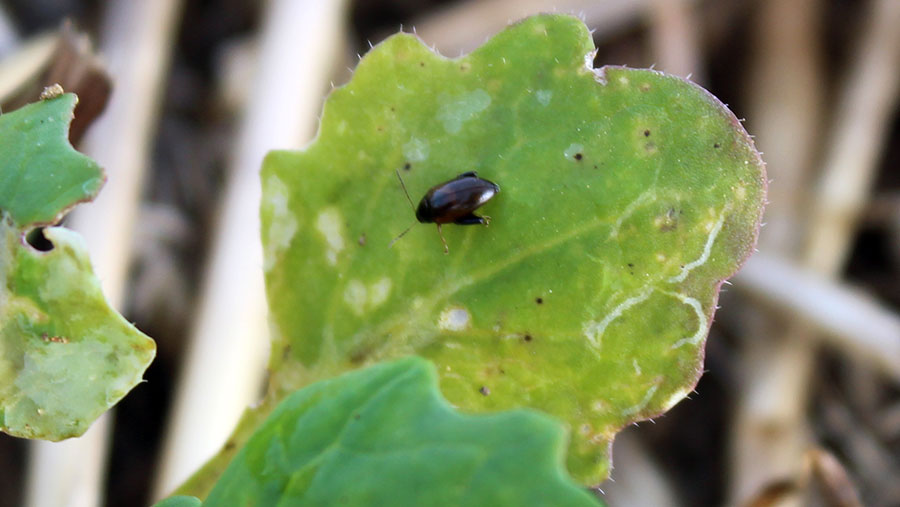Flea beetle havoc leaves UK needing rapeseed imports
 © Oli Hill
© Oli Hill Cabbage stem flea beetle destruction is forcing arable farmers to turn their back on oilseed rape, with the drilled area this season falling another 53,000ha since 2018.
With a similar area also lost since establishment, there is just 478,265ha left in the ground for the 2020 harvest, according to United Oilseeds.
Beetle damage and difficult weather conditions over the summer have accounted for the loss, with the drilled area now at a 16-year low.
See also: Autumn disease alert for well-established rapeseed crops
The destruction of the UK’s OSR crop has reached crisis point and United Oilseeds managing director Chris Baldwin issued a rallying cry for an industry-wide response to fight back.
He revealed that an area of OSR equivalent to the size of Oxfordshire had been lost since 2012.
Mr Baldwin predicted the UK will need to import 515,000t of OSR in 2020 to meet demand and said the countries supplying the shortfall would be non-EU countries where the use of neonicotinoid pesticides are still permitted, such as Ukraine.
Unfair for British farmers
“How is this fair for British farmers?” he said. “It’s an unfair playing field and that has a massive impact on everyone in this industry.
“As a trade we need to stop this decline because the situation is becoming critical.
“We need to come together to halt this trend and we need some kind of working party to fight against this flea beetle in a sustainable, environmentally friendly and economically viable way.”
The NFU, the AHDB, UK crushers, AICC, seed breeders, chemical companies, merchants and agronomists all need to collaborate in order to communicate the best advice to growers, Mr Baldwin said.
“OSR is a large crop with high demand, there’s a market for it and it’s not going away, so prices will get firmer,” he said.
Extra payment for members
United Oilseeds has announced a profits redistribution payment for all of its members to be paid out in March.
It recorded a pre-tax profit of £1.4m to end June 2019 and will pay out £402,000 (£1.40/tonne) to its members.
